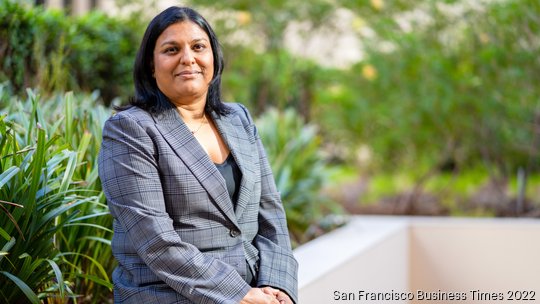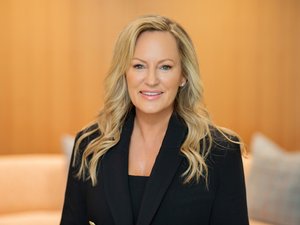
Venture capital deals slowed dramatically last year, but startups led by women saw a smaller decline than the industry as a whole.
Startups in the U.S. with at least one female co-founder raised 28% less funding in 2022 than the previous year, but they weathered a tough economy better than the industry at large, according to a report from the Female Founders Fund.
Globally, venture capital investments dropped 35% to $445 billion last year from $681 billion in 2021, according to Crunchbase. And in the U.S., funding dropped 31% over the same period, according to a report from PitchBook and the National Venture Capital Association.
Female founders have been "resilient in navigating this tough macroeconomic environment, and have not been disproportionately impacted by the market downturn," Female Founders Fund said in a blog post.
Based in New York and San Francisco, the venture firm cited data from both PitchBook and Crunchbase.
Despite last year's slowdown, startups in the U.S. with at least one female co-founder took more than 18% of all the capital deployed, a 74% increase over the amount raised by such companies in 2020, the report said. Early-stage investing was particularly strong.
"While the overall numbers may look bleak, it is important to note there has been consistent growth for female founders raising institutional capital at the [s]eries A [level]," the firm wrote.
The average series A round for female-led companies has increased every year over the past three years, reaching $14.8 million in 2022, up from $14.2 million in 2021 and $9.2 million in 2020. More than half of those rounds went to startups in the San Francisco Bay Area and New York, with Bay Area founders taking a full third.
While the deals going to female-led startups are still smaller on average, the industry overall saw a drop in average series A round sizes in 2022 to $20.8 million from $25.6 million the year before, though still up from $16 million in 2020.
The number of female-led companies reaching so-called unicorn status dropped to only 13 last year, compared with 83 in 2021.
But female-led companies also burn less cash than the industry on average and are exiting 12.5% faster at 7.2 years, compared with 8.1 years for the industry overall.
Racial and ethnic diversity still lag, though, and 85% of female-founded startups at the series A level were led by white women.
One of the largest funding rounds in the Bay Area last year went to TeraWatt Infrastructure in San Francisco, which is led by CEO Neha Palmer. The startup is building out electric vehicle charging infrastructure for fleets and raised $1 billion in a series A round.
In the Austin area, female-led companies with large funding rounds in the past few months included Howdy, a remote work placement startup that boosted its series A round to $18 million, and Slingshot Aerospace, a space simulation and analytics startup that pulled in nearly $41 million.
Austin Business Journal's Will Anderson contributed reporting.







